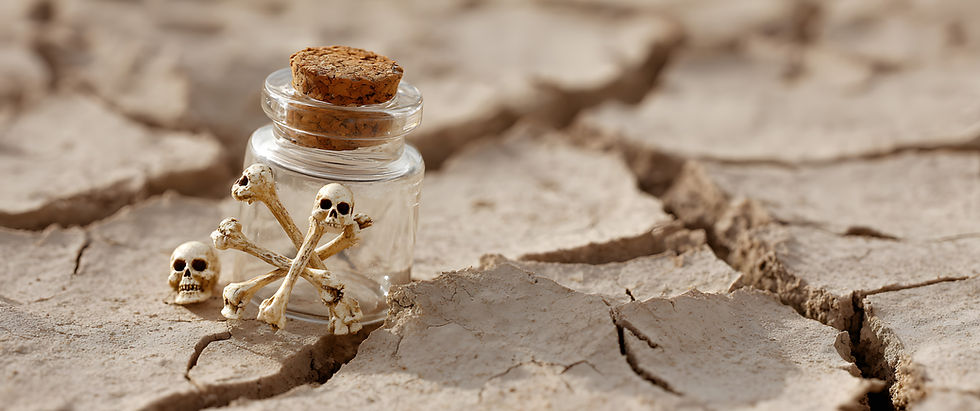Reach out, help is available
- By Johanna Salinas
- May 3, 2021
- 3 min read

Although Covid-19 was the antagonist of 2020, in its shadow hid a quieter enemy. Suicide has been affecting many throughout the world since the onset of the pandemic, with some nations' suicide rates increasing by 145 percent. Last year, Guam averaged 3.25 suicides a month.
“For both suicide and depression, I think there's a big misconception that talking about it will make things worse or lead to more severe problems,” said Dr. KristiAnna Whitman, project director of Guam Behavioral Health & Wellness Center's Focus on Life.

“Talking about our challenges can really lead us to help. We need to encourage open and honest conversations about our vulnerabilities and really help to reduce the stigma that's associated with seeking help. Suicide is preventable and depression is treatable.”
The Office of the Chief Medical Examiner has yet to release the official suicide count for 2020. Based on the preliminary numbers, Guam had 26 suicides from January to August. Records from 2019 showed a total of 31 suicides.
Over the years, Guam endures a disturbingly high rate of suicide among its youth and adult population; close to 60 percent of all suicide deaths on Guam occur among those 30 years and younger. Suicide is the fifth leading cause of death on Guam with approximately one suicide death every two weeks.
In the 2007 Focus on Life State Plan for Suicide Prevention and Early Intervention, data-driven, community-based approaches were utilized to ensure that youths, their families and communities at risk for suicide were served, particularly in the area of community outreach and education, and skills training among youth, parents, educators and youth services providers to identify and make necessary referrals to treatment.
Compounding the mental health crisis itself is the shortage of mental health professionals due to the national shortage of psychiatrists and psychologists in the field. GBHWC said it continues to aggressively recruit nevertheless. Last year, GBHWC received a Health Professional Shortage Area HSRA designation, which allows student loan forgiveness for those pursuing the field. This is a recruitment tool that has provided potential prospects that GBHW is looking into.
GBHWC said it also works closely with the University of Guam’s social work and counseling programs to recruit graduates for social work and counseling positions.
GBHWC will soon begin the process of setting up a Psychologist Intern Program on Guam as early as next year to provide a career path for local students who wish to become clinical psychologists and return home to serve our island residents.
“Suicide prevention is really a community effort. Prevention services to provide natural supports with the training to identify and guide family or community members to services is vital,” Whitman said. “Comprehensive crisis services are integral to reducing suicide on Guam.”
Whitman advised those who are in despair not to feel ashamed about reaching out for help. “There really is nothing that can be said or done to replace the loss of a loved one- especially when that loved one dies by suicide. It is important though to listen to the survivor's story and really hear how they're feeling.”
It can be a confusing situation, Whitman said. “Family members might feel like they are left with so many unanswered questions and feel like they're to blame,” she said. “I would explore these feelings with them- suggesting they write down their feelings, talk openly, and seek support from others who may have experienced similar loss- or professional services.”
ADVERTISEMENT
Whitman said there are resources that can be provided to help the family cope. “While it may not seem like it immediately, with help- there is hope,” she said. “Connecting with the lifeline, a support group (in-person or virtually), and maybe professional resources can assist survivors of suicide in exploring their feelings.”
Many Guamanians are frustrated with the new suicide hotline that would require local calls to dial the 671 code, but Whitman believes the 988 services will be beneficial to the community. The Guam Behavioral Health & Wellness Center's Crisis Hotline recently became a member of the National Suicide Prevention Lifeline. The nationwide transition to 988 services will transform the way mental health crises are responded to on-island and across the U.S. Support of these ongoing efforts is critical in mitigating suicide on Guam.”
Whitman believes an easy way to prevent suicide is to just reach out to loved ones during these lonely times “As community members, we all play a role in suicide prevention,” she said. “Checking in on our loved ones, truly asking how others are doing, and being kind are ways of being promoters of positive mental health.”

Subscribe to
our digital
monthly edition






